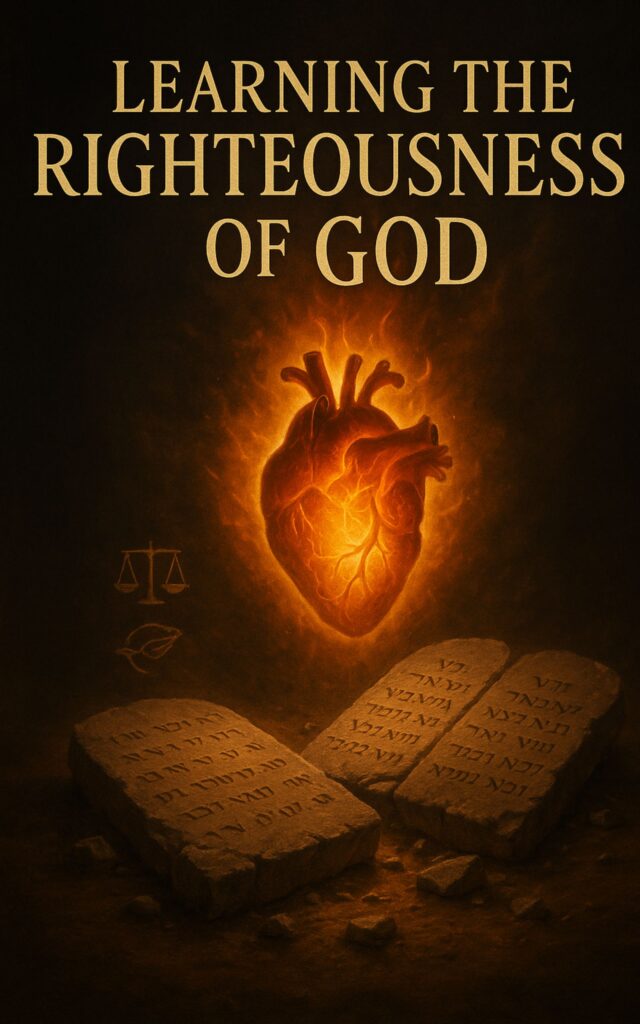The Three Ancient Lies We Still Believe About Morality

Many of us view morality as a kind of cosmic balancing act. We imagine a scale where our good deeds are weighed against our bad ones, hoping that our virtues will ultimately outweigh our vices. We believe that being “mostly good” or “a good person at heart” is enough to keep the scales tipped in our favor.
An ancient biblical story, however, offers a starkly different and more challenging perspective on what it means to be righteous. It dismantles the idea of a moral balance sheet and replaces it with an absolute standard that can feel profoundly counter-intuitive to the modern mind.
This perspective comes from an analysis of the events at Shittim, the final camp of the Israelites on the edge of the promised land, as recorded in the book of Numbers. The lessons derived from this high-stakes historical moment are not dusty relics of a bygone era; they offer profound and unsettling truths for anyone seeking to understand the nature of righteousness today.
The Flaw in the “Good Deeds” Balance Sheet: Partial Obedience Is Disobedience
The first and most fundamental lesson is that in God’s view, being obedient in some areas of life does not cancel out disobedience in others. There is no moral balancing scale where your honesty in business negates your hidden lust or where your public generosity excuses private sin.
This principle shatters the common belief that being “mostly good” is good enough. We tend to think that if our good deeds outnumber our bad ones, we’re on the right track. This ancient perspective, however, presents a different logic: breaking the law in just one area makes you a lawbreaker, period. The standard is not relative; it is absolute.
For whosoever shall keep the whole law, and yet offended one point, he is guilty of all.
This reveals an unyielding standard: the law of God demands obedience that is personal, perfect, and perpetual. Anything less falls short of the mark.
The Hidden Connection: Every Immoral Act Is an Act of Idolatry
Here is a provocative and powerful idea: no one can commit immorality without committing idolatry. This statement reframes our understanding of sin, moving it from a simple behavioral mistake to a profound spiritual rebellion. The logic is as direct as it is profound. The source argues that fleshly sins like adultery are fundamentally expressions of covetousness—a desire for what is forbidden. Scripture, in turn, explicitly defines covetousness as idolatry. The inescapable conclusion, therefore, is that a violation of the seventh commandment (“thou shalt not commit adultery”) is impossible without first violating the first (“thou shalt have no other gods before me”).
Before you can ever violate number seven, thou shalt not commit adultery. Before you can violate number 10, thou shalt not covet, you will have already violated number one, thou shalt have no other gods before me. Because in order to violate number seven, in order to violate number 10, You have to dethrone God and enthrone yourself.
This reframes immorality not merely as a failure of willpower, but as a violation of first principles. Before a person can break the law against adultery or coveting, they have already broken the primary law: to worship God alone. Every lustful act is therefore an act of cosmic treason, a declaration that the self, not God, is the ultimate arbiter of right and wrong.
The Danger of Being “Too Valuable to Fail”
An upstanding appearance can mask deep corruption. The Israelites who engaged in sexual immorality with the Moabite women at Shittim were not necessarily what we might picture as obvious villains or, in the words of the source text, “low down filthy dishonest scumbag drunkards.” In all probability, they appeared to be upright and honest in every other area of their lives. This highlights a critical danger: a respectable exterior can easily mask a corrupt interior reality.
This point is shockingly illustrated by an anecdote about a preacher who developed a corrupt philosophy to justify his own sin. He reasoned that a person could effectively bargain with God by becoming indispensable to His work.
…if you wanted to engage in a little sin, then you needed to make yourself so valuable to God that he would overlook your sin because of your own usefulness.
This philosophy is profoundly dangerous because it is built on two false and unbiblical premises: first, that “God can be bought off,” and second, that “God needs us.” It promotes the idea that our utility or outward appearance can somehow excuse or provide cover for our hidden sins. This serves as a powerful warning against the kind of self-deception that allows us to believe our good works give us a license to sin in secret.
This ancient perspective dismantles our modern moral calculus. It reveals that a single transgression makes us lawbreakers (Takeaway 1), that this transgression is rooted in the idolatry of the self (Takeaway 2), and that even a life of otherwise upstanding conduct cannot hide this spiritual reality (Takeaway 3). This vision of holiness offers no easy compromises or convenient loopholes. It presents a profound challenge to our modern assumptions about what it truly means to be good.
What would change if we viewed righteousness not as a balancing act of good versus bad, but as an all-or-nothing commitment to a single, holy standard?